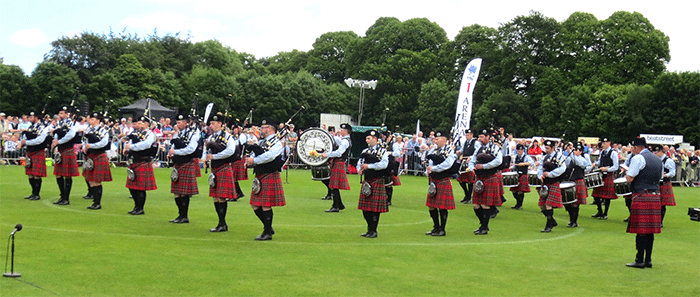
The 1980s were a time of struggle and uncertainty for Ballycoan. The band continued to compete in Grade 2 into the early 1980s but there is not much evidence of it making the prize lists and as the decade progressed absences from competitions were more numerous.
Brian Rea continued to work tirelessly to keep the band going. Despite his efforts, by 1985 it had moved down to Grade 3, although appearances in the grade were spasmodic. An RSPBA ‘Pipe Band’ magazine article from the period suggests that the Troubles, at their height at this time, were having an effect on recruitment because of a reluctance by individuals to travel far from home in dangerous times.
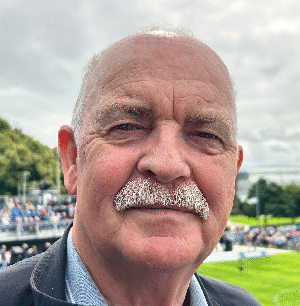
Ballycoan, which, remember, was based in a relatively sparsely populated area, had depended on bringing in outside players to augment their local membership and maintain their standards. Other challenges to recruitment would have come from the creation of new bands such as the McDonald Memorial, the Pipes & Drums of the RUC and NI Prison Staffs PB along with the rise in prominence of a number of other local bands.
Happily, the 1990s saw a resurgence in the band’s fortunes. Brian Rea continued his efforts to rejuvenate things and in the early 1990s he would lead them back to regular action in Grade 3 when from 1991 they were placed in the top four at every competition, including first prizes at the Ulster and European Championships in 1993.
A runners-up spot was achieved at the World Championships in 1993, with the drum corps winning the title they had also won in 1991 and 1992. The drummers also won All Ireland titles in 1991 and 1992, Ulster titles in 1992 and 1993, and they were also the NI Champion of Champions in 1993. They also won the drumming at the Cowal in 1991 and 1992. Brian Rea was assisted by Drum Sergeant Mark Armstrong and their efforts led the band to promotion to Grade 2.
In 1997, after twenty one years as Pipe Major, Brian made the decision to step down handing over the reins to his son Alfie who had returned from a stint with the Field Marshal Montgomery. By 1999 the band had won the Grade 2 Cowal Championships.
The Millennium in 2000 saw a return to the big time. Alfie Rea continued the success that had been achieved throughout the 1990s as the band recruited a number of young players mainly from the NI Piping and Drumming School where his father was, and continues, to be a tutor.
2002 would prove to be a pivotal year in the band’s fortunes as they were crowned Grade 2 All Ireland and Ulster Champions, as well as NI Branch Champion of Champions as a band and drum corps.
In addition they became one of the few bands to win all five RSPBA major titles (British, Cowal, European – also drums, Scottish and Worlds) in the same season. This gave them a Grade 2 RSPBA Supreme Champion of Champions title and led to their promotion to Grade 1.
But they were far from finished. On they strode to become the most successful Ballycoan band of all time.
For the next five years Alfie Rea led them to three NI Branch Champion of Champion titles, 2003, 2004 and 2006, while the drum corps under Drum Sergeant Brendan Megoran secured the title in each of the five years from 2003 – 2007. In addition, Alfie guided the band to Grade 1 final qualification on three occasions: 2003, 2005 (first in Qualifier) and 2006.
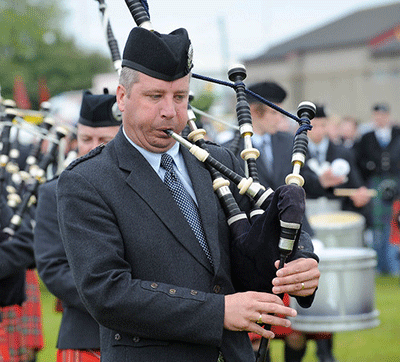
In the winter of 2007 Alfie invited Glenn Cupples, a long term friend and fellow Field Marshal Montgomery player, to be the new Pipe Major and he played an important role in the development of the pipe corps during his two years in charge.
Under his leadership through 2008 and 2009, the band lifted a further two Grade 1 NI Branch Champion of Champion titles for both band and drum corps. He also led the band to Worlds Grade 1 finals in 2008 and 2009 (first in Qualifier).
Following the 2009 season Glenn stepped down and Alfie returned as Pipe Major going on to take the band to more success and a permanent position in the top 10 in the Majors during 2010.
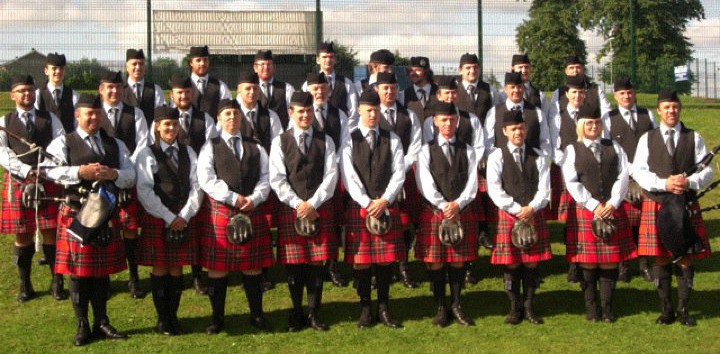
However at the end of that season the pressures of family life and work commitments hit the band, badly reducing the number of players available to make competing feasible for a modern Grade 1 outfit.
The band made the tough decision to take a year out with a plan to re-form at the end of the 2011 season in the hope of finding new players.
Sadly, after several attempts by the band’s committee to recruit to remain in Grade 1, they were unable to gather enough players and their fortunes waned once again. They made their last appearance in the top level with an outing at the UK Championships in 2014 under the leadership of Pipe Major Richard McGrath and Drum Sergeant Brendan Megoran.
Credit must be given to Pipe Major Brian Rea who is readily identified as the person who has worked tirelessly to keep this great band in existence. After some four decades he would have been forgiven if he had thrown in the towel.
However, he is made of sterner stuff than that, and in 2016 he started the rebuilding process once more through the formation of a Grade 4A band which has competed through to the 2019 season and whose progress, like so many others, has been curtailed by the Covid-19 pandemic.
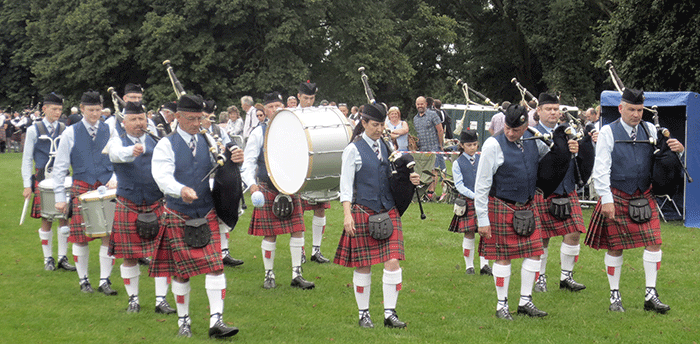
Hopefully when it is over Ballycoan, a band that has been such a credit to the pipe band movement, will eventually repeat the glory days of yore when they competed at the very highest level.
- I would wish to express my best thanks to retired RSPBA Adjudicator Ian Wood who assisted me with this history, provided some superb photographs from the early years, and also liaised with Pipe Major Brian Rea. Ian was a member of the band during the years that his father, Willie Wood, was Pipe Major. P/M Wood was one of the pioneers of pipe bands in Northern Ireland. He was Pipe Major of Ballycoan for two decades till 1963. Read earlier excerpts in this history by inserting ‘Ballycoan’ in the ‘Search’ box above.










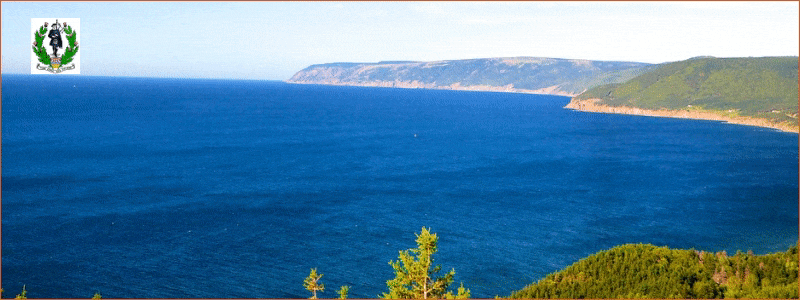





Another great series on Ballycoan from Gilbert Cromie, following on from his earlier engrossing articles on Robert Armstrong Memorial and St Patricks Donaghmore. Greatly appreciated, and without his sterling efforts, much of this historical, cultural and unique aspects of pipe bands in Ireland would be long forgotten. As a footnote, I would add that for many years from the 1940’s onwards, Cowal proved to be a happy hunting ground for many notable Irish bands.